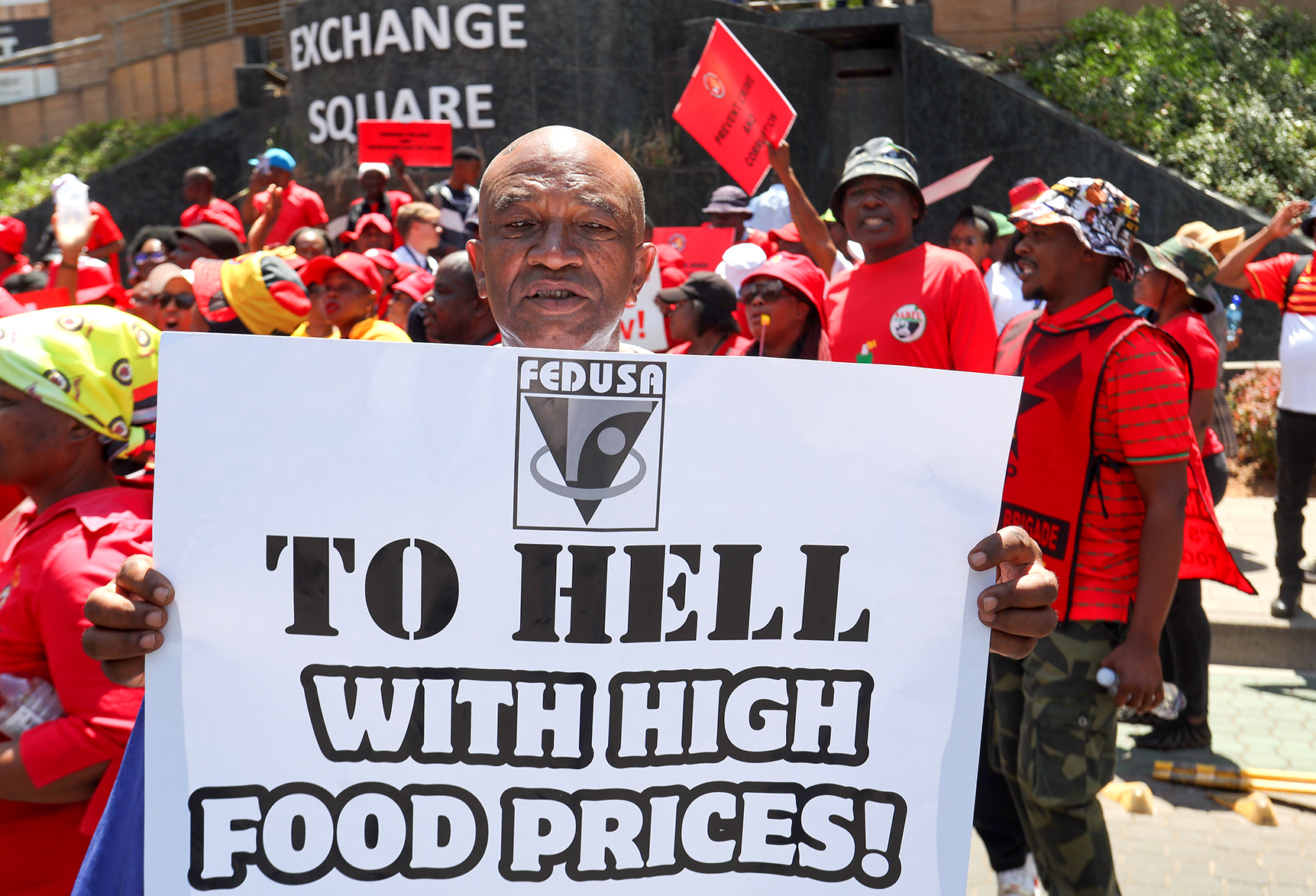During Sona, the President highlights achievements, flags challenges, and outlines interventions for the coming financial year. This address marks the official start of the parliamentary programme and sets out the government’s key policy objectives and deliverables for the year ahead. Think tanks and civil society organisations shared what they hope the president will touch on in this sitting.
President of the General Industries Workers Union of South Africa (Giwusa) Mametlwe Sebei said the union expected the president to address the escalating cost of living, particularly with regards to food, fuels, transport, and water.
“We demand concrete measures to control prices, subject price regulatory authorities to democratic working class public control, to ensure prices of basic food, goods and services are done in the public interests, instead of shoring up superprofits of big corporations,” he said.
National Health Service
“We want increased access and investment in free quality basic services, especially education, health, electricity, water and housing. We want free quality public education from the cradle to the grave; nationalisation of private healthcare and medical aid schemes for a truly world-class National Health Service that provides universal access and quality; we need adequate free basic electricity and water supply.”
Clotilde Angelucci, Communications and Network Lead at Youth Capital, told Daily Maverick they didn’t need big promises before the address. As a campaign advocating for young people’s experiences to shape policy change to solve youth unemployment, “we urgently need real action to tackle poverty, unemployment, and inequality. The unemployment rate for young people between the ages of 15 and 34 years remains higher than the one of older age groups, and the latest income and expenditure survey shows the deep economic inequality connected to education attainment,” said Angelucci.
She added that although the Presidential Employment Stimulus was often celebrated for its achievements, its biggest programme, the Basic Education Employment Initiative, didn’t receive funding in 2024.
“As a result, 200,000 young people missed out on work experience, and public schools lost the extra support overnight. Ten years after #FeesMustFall, many students still struggle to access and afford university, widening the gap between those with opportunities and those without. This Sona must deliver practical, urgent solutions — backed by proper funding from the National Treasury — to give young people a fair shot at their future,” Angelucci said.
Grants
The high court recently ordered the Department of Social Development and the Social Security Agency to amend the requirements and application process for the Social Relief of Distress grant to make it more accessible to those who may need it. The judgment also noted that the grant should not be considered a temporary arrangement due to need. Civil society organisations will be watching out for whether the president will proclaim the grants permanency, and also if there will be mention of increasing it to more than R500, or as suggested by the court and civic organisations, to make it align with the poverty line at R760.
Giwusa trade union stated that it wanted “increased relief to struggling households. We want substantial increases to social grants to livable income and expansion of SRD grants into a Universal Basic Income Grant to ensure decent minimum standards of living for everyone”, it said.
The DG Murray Trust, which advocates for and creates programmes to bridge the inequality gap in South Africa, has ramped up its campaign for the maternity grant. Deputy CEO of the trust Kentse Radebe unpacked challenges faced by pregnant women as more than half of South Africa lives below the poverty line. Radebe highlighted that women found themselves prioritising family members or children in the home over their own health. This had detrimental effects on unborn children who needed nutrients to be healthy.
The Maternal Support Grant Draft Policy has been in the making by the Department of Social Development since 2012, when the department commissioned a study on the feasibility of introducing maternity benefits in South Africa.
At the time, the study sought to investigate state support options for vulnerable pregnant women.
Lumka Oliphant, the Acting Deputy Director-General for Corporate Support Services at the Department of Social Development, called on all interested parties to make their voices heard should the bill be drafted for public comment. The government recognised the constitutional provision that everyone had the right to have access to social security, and that those who were unable to support themselves and their dependents should access appropriate social assistance (Section 27, [1] [C] of the Constitution).
“An interdepartmental task team was formed. It was led by the departments of health and social development, and included Sassa and the departments of basic education, higher education, home affairs, justice and labour, among others. The draft policy has already been taken to the Social Protection, Community and Human Development Cluster — a normal government policy process — and has been given the green light for tabling at Cabinet for consideration for public comments,” Oliphant said.
Hunger and Malnutrition
Nzama Mbalati, the CEO of the Healthy Living Alliance, said they hoped the Sona would include efforts to prioritise health, food and nutrition.
“Many South Africans are going hungry, which is a lack of access to food, but also South Africans are being fed unhealthy foods which lead to obesity and many diseases,”
Mbalati said the tools to fight the plague of malnutrition were increasing the food promotion levy to 20% from the current 11%, “and increases in other health taxes such as alcohol and tobacco. We believe the president will talk about us responding to the fiscal and health needs. We are calling for the president to announce health reforms such as the National Health Insurance and other reforms that are much needed. We hope we will stick to the social wage and expand grants, especially the child support grant, the SRD and the national school nutrition programme.” DM





